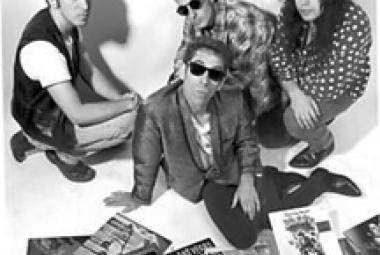KING CRIMSON – In the Court of the Crimson King
I cannot talk about progressive rock without bringing up one of my favorite albums: King Crimson’s In the Court of the Crimson King. This was one of the earliest albums in the progressive rock genre; Bruce Eder in Allmusic describes it well as “one of the most daring debut albums ever recorded by anybody”. I can’t even remember how I found out about this album; it came out in late 1969, and I am pretty sure that I already had a copy of the album with me when I headed to North Carolina State University for the second semester of my freshman year in early 1970. Even at the time, the album made almost all of the other 1960’s music seem positively stodgy in comparison. Woodwinds are very rare in rock music, yet Crimson King abounded in them; but honestly, I couldn’t tell how they made some of those sounds. The dense lyrics were also a revelation; printing out the lyrics in an album was comparatively rare until Sgt. Pepper came along, and the fact that many of the lyrics were written by someone having the sinister name of Peter Sinfield (who was not numbered among the musicians) only heightened the notion that I was hearing something brand new.
One of the guys in my suite in college had actually seen King Crimson in concert; they were the opening act for the Turtles, and is that an odd pairing. He told me that people in the audience could tell that the band was good, but mostly they were all just scratching their heads at what they were hearing.
King Crimson never quite reached those heights again (to these ears anyway), not least because several of the key members of the band had moved on (or were about to) before the release of their second album, In the Wake of Poseidon. One of the things that turned me off about the album was the three-part song, “The Devil’s Triangle” toward the end. I was growing weary of the Satanic streak in rock music, and this just seemed to be more of it, though there were few if any lyrics. It was a long time before I realized that the Devil’s Triangle is another name for the mysterious Bermuda Triangle out in the Atlantic Ocean, not anything to do with Satan. The music was even included in a documentary about the Bermuda Triangle many years later.
Vocalist Greg Lake of King Crimson joined keyboard wiz Keith Emerson of the Nice and Carl Palmer, who had drummed for the Crazy World of Arthur Brown and Atomic Rooster, in forming Emerson, Lake and Palmer; how you feel about this “super group” probably goes a long way toward defining how you feel about progressive rock as a whole. King Crimson’s woodwind man, Ian McDonald eventually co-founded Foreigner, a highly successful though completely different band. For decades, I confused McDonald with about the only other prominent woodwind player in rock and roll, Jethro Tull front man and flautist Ian Anderson.
An interesting thing about progressive rock bands is that most of them did not hit the ball out of the park with their first album, the way that King Crimson and Boston did. As I noted in my last post, the first hit songs for Yes came on their third album, The Yes Album. Journey didn’t make any real noise on the music scene until vocalist Steve Perry joined up for the fourth album, Infinity. The breakthrough album for Styx, The Grand Illusion was their seventh album. Leftoverture was the album that put Kansas on the map, their fourth album.
(October 2012)















